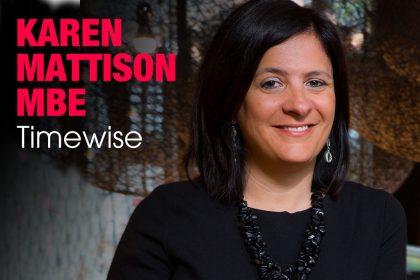How to avoid the seven most common job hunting mistakes
If you’ve been looking for a job for several months without much success, maybe it’s time to change your strategy? We reveal the seven most common job hunting mistakes – and how you can avoid them.
It’s not always easy looking for a new job. You may start out feeling positive and enthusiastic, but as time passes without any offers coming in, your confidence can slowly erode.
Eventually you can begin to worry if you’ll ever find a new job. And slowly you lose energy and enthusiasm for your job search – making it even more unlikely you’ll impress a potential future employer.
So instead of simply following the same unsuccessful strategy, maybe it’s time to take a new approach (like this young marketing graduate did after applying for over 300 jobs and getting nowehere). To help you work out what that may be, career management coach and corporate trainer Jane Jackson reveals the seven most common mistakes job hunters make – and how you can avoid them.
How to avoid the seven most common job hunting mistakes
Remember the saying, ‘If do what you’ve always done, you’ll get what you’ve always got’? It very much applies to job hunting. So if you’re struggling to find the perfect position, maybe it’s time to regroup, rethink and reassess your strategy.
Let’s take an objective look at where you may be going wrong (and how to stop!) with the seven most common mistakes job hunters make.
1) You’re not ready
It’s never a good idea to look for a new job when you’re feeling emotional and your confidence is at a low ebb. For example:
- You’re looking for a new role after being made redundant.
- You left your old role because you couldn’t stand it any more.
- You were let go from your last position for some reason.
- You’re looking for your first position after a break to look after your children.
- You’re still hurting from being in a difficult situation.
There are lots of reasons why you may not be emotionally ready to approach a job hunt with a positive, successful attitude. But if you don’t believe in yourself, why should a potential employer? If you doubt your skills and confidence, it will show in the way you write about yourself in your CV, and present yourself in a job interview.
So what can you do? Examine the reasons why you’re feeling emotional, and what you can do to plug your confidence gaps. If you need to update your training, do. If you lack confidence or are worried your last position was too long ago, look for a relevant volunteering position to hone your skills and give you something to put on your CV.
Career or business coaching can also help to reframe your position, boost your confidence and help you identify new strategies and directions to tackle.
Employers are looking for professionals who believe in their abilities and know that they can hit the ground running without any emotional baggage. So take time (and get help if you need) to rebuild your self-confidence and get into the right frame of mind for your job search, and enable employers to see you for the shining asset that you really are.
2) You don’t know what you want or what’s important to you
If you haven’t assessed what drives you in your career or what your specific skills, knowledge and key motivators are, you may be applying for roles that are not suited to you.
To successfully apply for a position you need to understand what makes you tick, and the reasons why a role appeals to you. As you go through to the interview process, employers will want to know how close a ‘fit’ you are to their needs, their corporate culture and team environment.
And to convince them you’re the right candidate for their post, you need to prepare well so that you can eloquently communicate your value, key drivers and be authentic in your responses.
3) Your CV and communication strategies are haphazard
If you’re sending out the same generic CV and application letter for every application then you’re sabotaging your chances of securing a rewarding new career before you’ve even made it to interview stage (which is unlikely you’ll make anyway).
Your CV and application letter often are your first point of contact with your potential employer or a recruiter. If it’s generic and they need to search too hard for what they’re looking for (or worse, they can’t find it) in your CV, it will probably go straight into the ‘no’ pile.
So take time to tailor your CV for every position, and write a great application letter. And very importantly, think of a strong positioning statement that clearly defines why you are perfect for this role. Not only will it help your CV to stand out on a great way, but gives you a firm foundation to build a convincing case for your interview, too.
4) You don’t look the part in person or online
Have you carefully considered the image you are projecting to others? Before a potential employer even meets you, they can view your LinkedIn profile and other social media sites. So make sure you position yourself honestly and professionally.
And when you do finally get to meet them face-to-face in an interview, they’ll often form a firm opinion of you at first sight. So research to find out what will be appropriate attire for your interview and on the job. You want to make sure you look the part the moment you walk in the room.
5) You don’t know how to use all the job search methods effectively
If you’ve been focusing mainly on advertised roles you could well have been missing out on dozens of potential employment opportunities.
So instead of waiting for the dream job to be advertised, focus on expanding your online and physical professional network to uncover the hidden jobs. Make sure you’re on LinkedIn and actively look for people to connect with – seek out old contacts and colleagues and send them a message to ask if they know of any positions you may be right for. (You can read seven simple rules to create a perfect LinkedIn profile here.)
Make the time to attend events, courses and workshops relevant to your work. Not only will you gain new skills and fresh insights, but it’s a great chance to meet new contacts, find out about potential opportunities and get your business card out.
If you use recruitment consultants, make sure you’re really clear about what you’re looking for, and the skills and experience you can offer companies. Don’t limit the type of business or industry – your dream position may lie in a surprising place, so keep your options open.
6) You’re not able to convey your value in interviews
Do you prepare effectively for job interviews? Are you lacking in confidence during interviews, or do you oversell yourself?
The key to successful interviews is to prepare, prepare, prepare! Employers are looking for someone to provide the functional skills they need, with the soft skills required for the role, who is willing to work the way that fits with the organisation’s requirements and gets along with and fits the culture of their team.
And in order to convey your suitability, you need to research the company and role, practice your interview techniques, listen carefully to the questions you’re asked, answer with examples of your successes and follow up with a ‘thank you’ email after the interview.
7) You don’t know your worth or how to settle into a new role
When the offers come in, you need to know the market rate for the roles you’re offered, and how to negotiate for the best outcome for you and the company.
You also need to have the confidence to ask for what you know could be a good outcome for both of you. And when you do accept a new role, you need to be able to settle in quickly, develop good working relationships and demonstrate your worth, without looking like the ‘eager new employee’ during the crucial first 90 days in your new role.
Are you making any of these mistakes?
If any of these seven common job hunting mistakes resonate with you, it’s now time to take action to fix things. Take measures to build your confidence, do your research, prepare well for each step in the process so you can ace your next interview and transition smoothly into your new role!
Need more practical help?
If you need more help writing a great CV or application letter, take a look at these articles:
- How to write the perfect application letter.
- 10 common CV mistakes and how to avoid them.
- Six expert HR tips to get your CV noticed.
- How to tidy up your CV in less than half an hour.
- How to make your CV look better.
- Looking for work after a career break? Five tips to get you started.
- Four tips on writing a CV after a career break.
Jane Jackson is a career management coach and corporate trainer specialising in building the confidence of executives who have experienced a redundancy or are at a crossroads in their careers. Her 7 Step C.A.R.E.E.R.S. programme, addresses all of these mistakes.










